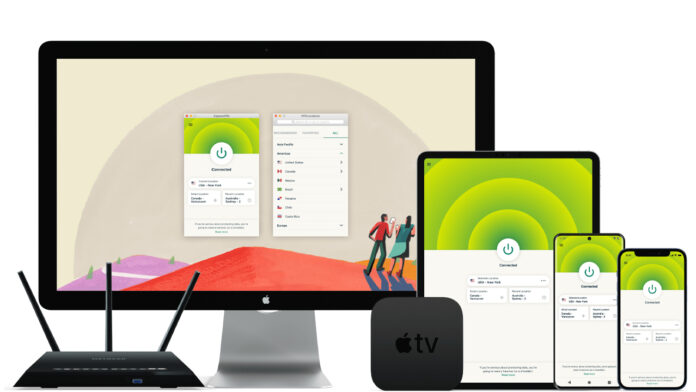VPNs or Virtual Private Networks, as we know them, were once state-of-the-art technological advancements, but they are now fundamental utilities. In order to provide a safe, encrypted connection between your computer and the internet when using public networks, a VPN builds a private tunnel for your data and communications. VPNs block discrimination and location-based targeting at the most fundamental level, safeguarding your online privacy. If you are still not sure what VPN means, get in touch with Mediacom customer service for further assistance.
To put it simply, VPNs encrypt your internet traffic to minimize exposure and make sure that nobody, not even your internet provider, can see what you are doing online. After installing the VPN program, you can swiftly and securely secure a device and gain unrestricted access to stuff from around the world.
In this article, we will explore how a VPN secures your connection and whether or not VPNs allow you to browse privately. Moreover, we will also see to which extent the private networks ensure privacy and your online security!
How Does a Virtual Private Network Work?
Corporate VPNs and internet connections that allow for remote work are becoming more prevalent in industry such as the Mediacom bundle deals that are compatible with various VPNs.
VPNs are currently the cornerstone of online privacy in the consumer market. As you connect to the internet, the VPN acts as a kind of middleman, disguising your IP address and protecting your identity.
Your ISP issues your device an IP address, which is a string of digits. Additionally, if your data is somehow intercepted, it will be incomprehensible until it reaches its intended location.
Why Do You Need a Good Virtual Private Network (VPN)?
If you are skeptical about whether or not to invest in a good VPN, here are a few benefits for you to consider:
Access to Geo-Blocked Websites
For certain countries or regions, there is a wide range of websites, promotions, and services available. But what if you want to benefit from that opportunity as well, but your region is unable to access it? A VPN can let you change your online location by changing your IP address. When that happens, you will appear to be a user from that country and you will be able to benefit from all of the advantages that locals have.
Concealing Your Online Activity
Your ISP and search engines keep track of the online searches you conduct so they can display advertisements that are specifically targeted for you, give you a localized experience, and sell your data. Because a VPN enables you to browse through a different IP address, search engines cannot target you because the information is linked to the VPN rather than to you.
However, if you still have a connection to services like Google or social media sites, they will continue to monitor everything you do unless you turn off advertising trackers. Large corporations continue to track you despite changing your IP using less precise techniques like device fingerprinting.
Secure Browsing on Public Networks
Using a public Wi-Fi network, such as one at an airport, hotel, or café, might be risky. Other users on the same network, such as the hackers and cybercriminals we previously mentioned, can readily access your data and personal information.
If you do not want anyone to see things like your email login, images, files, or credit card information on these hotspots, it is a good idea to use a VPN connection. While you are connected to a public Wi-Fi network, the VPN encrypts all of your data. Hackers will only be able to see encrypted data, and they will not be able to access or use your personal information.
Anonymity in Downloading Files
Specific torrent downloads are forbidden in some countries, and individuals who do so are tracked down and occasionally even placed on trial. Naturally, we oppose any illegal behavior and we are aware that many people prefer to use the internet anonymously and in private, both when browsing and when uploading and downloading files.
To ensure that no one can see what you are downloading or posting, you can utilize a VPN. Since the communication is encrypted and your IP address is changed when using a VPN, you can download without being detected.
The Bottom Line
A VPN is not inherently secure, therefore you could have doubts about its effectiveness. As we demonstrate in our analysis of virtual private networks, the technology is just used to grant users remote access to an otherwise private network. Businesses have been utilizing remote-access VPNs to give employees remote access to company resources for years. However, you can contact the internet providers in my area for further info on how your internet connection complies with VPN networks.
For straightforward applications like this, the user only needs a username and password. When logged into the company’s VPN, an employee can access the internal network as if they were physically connected.

